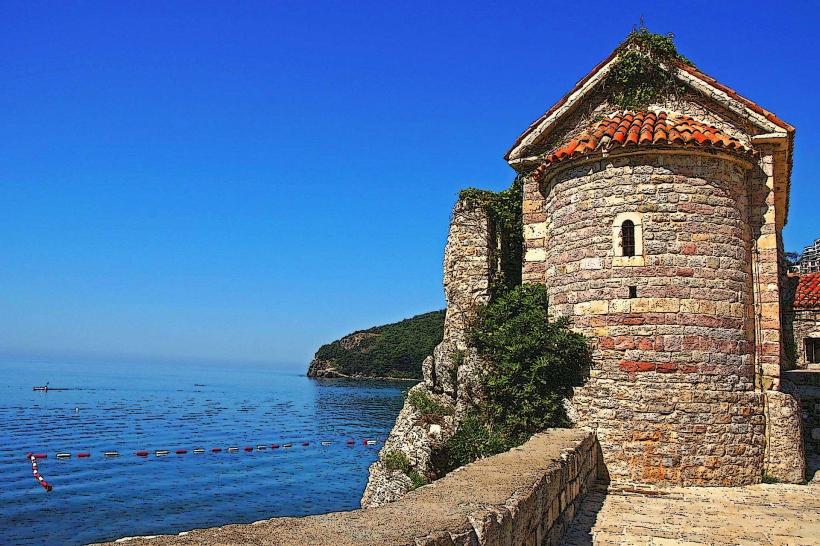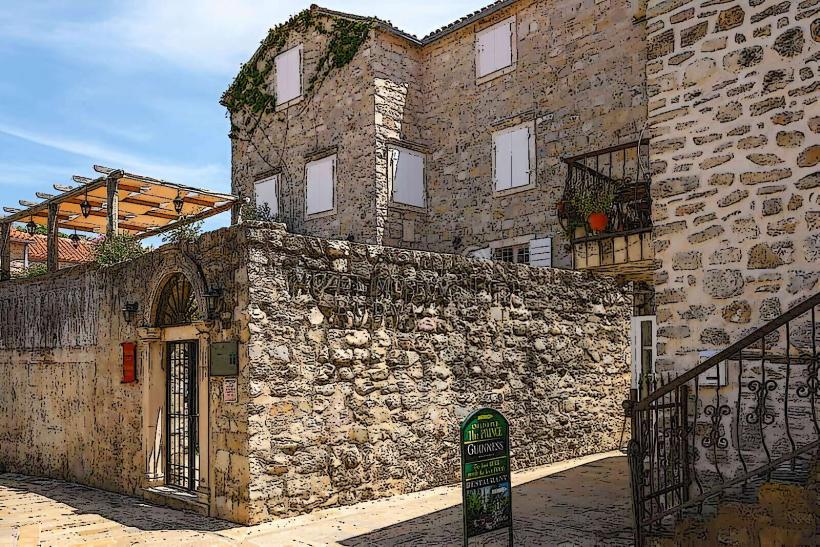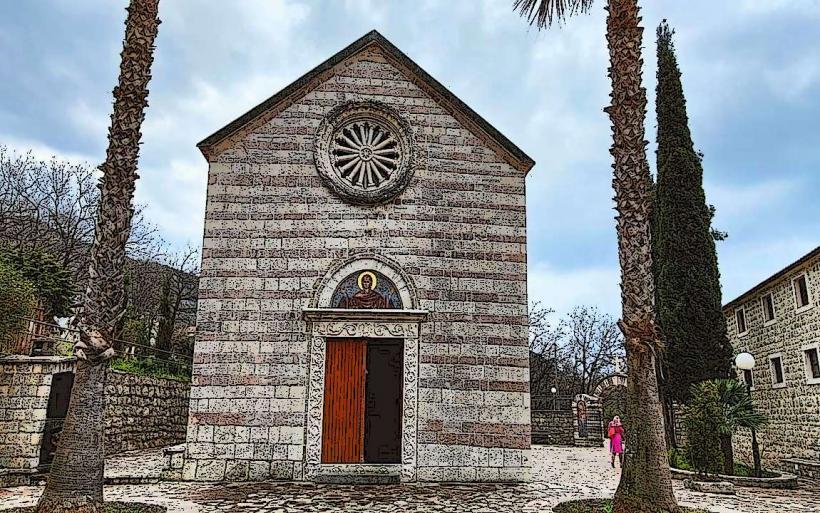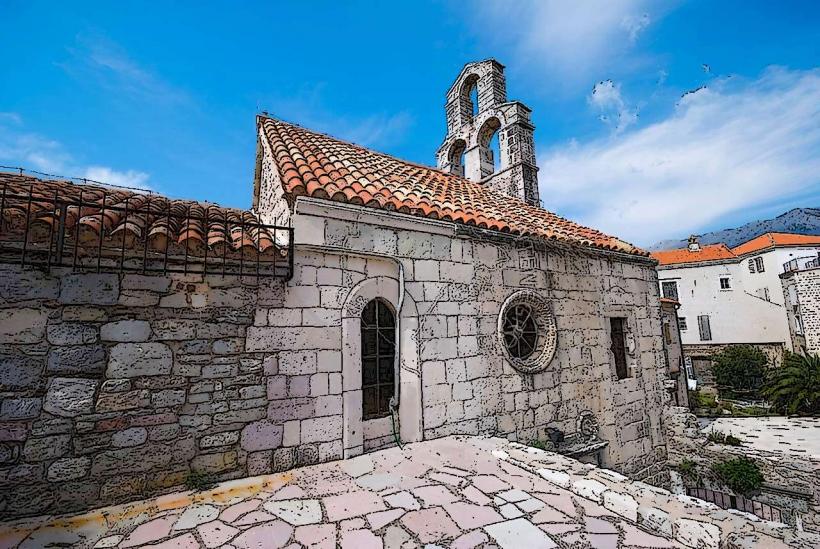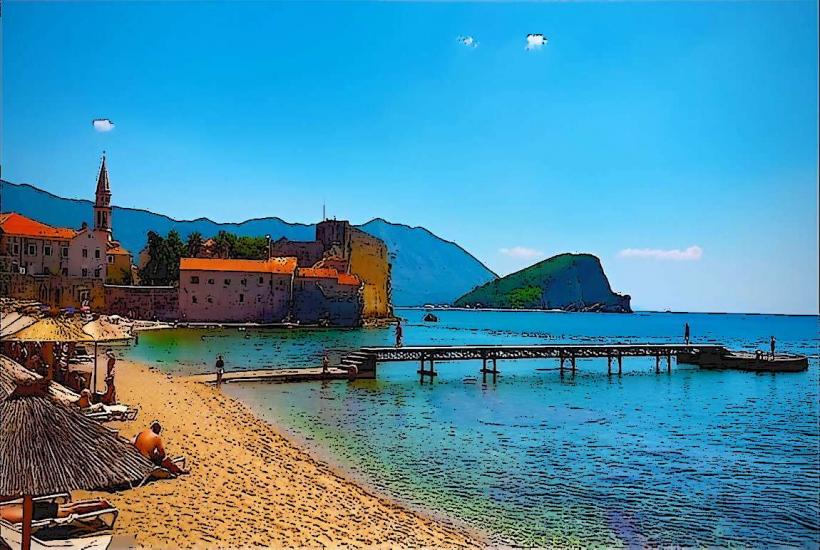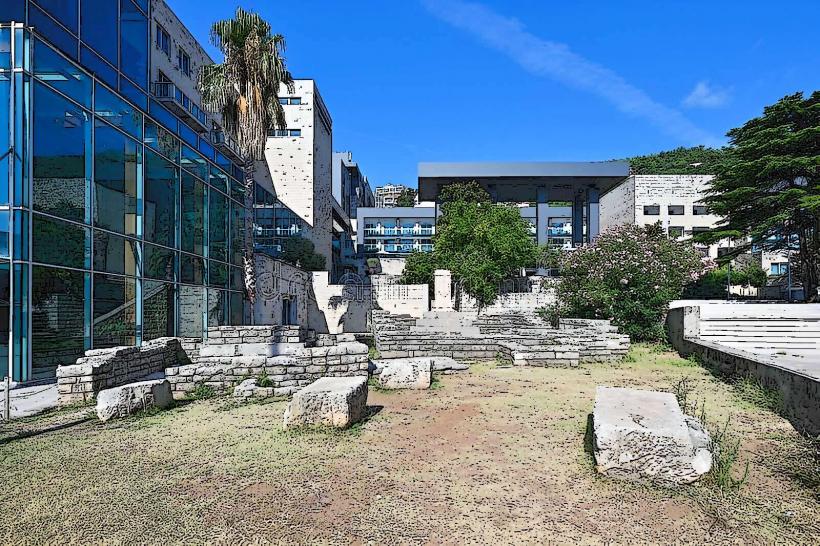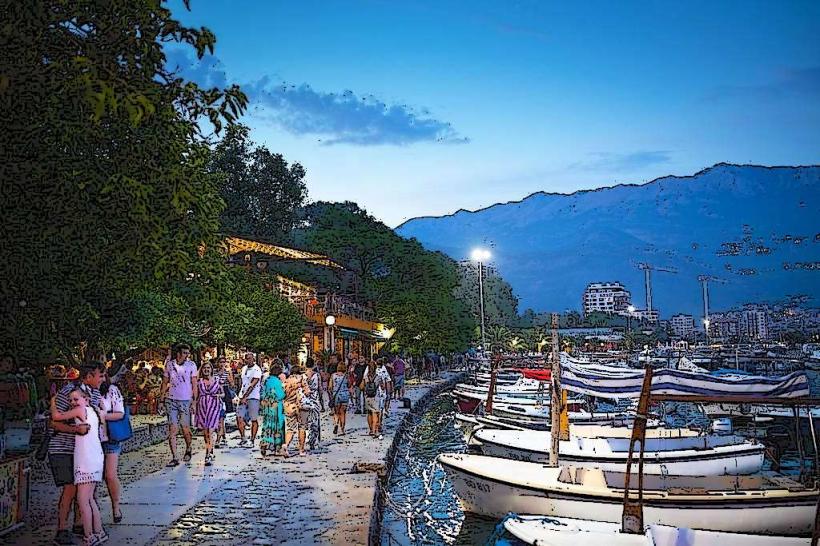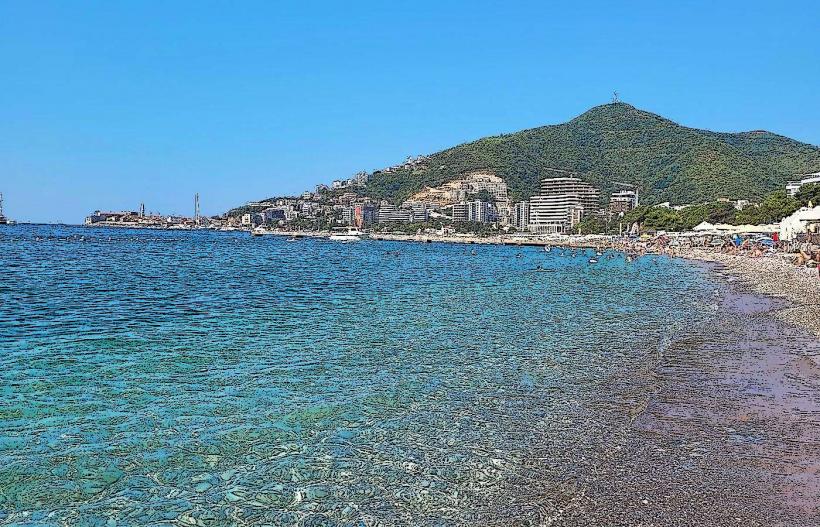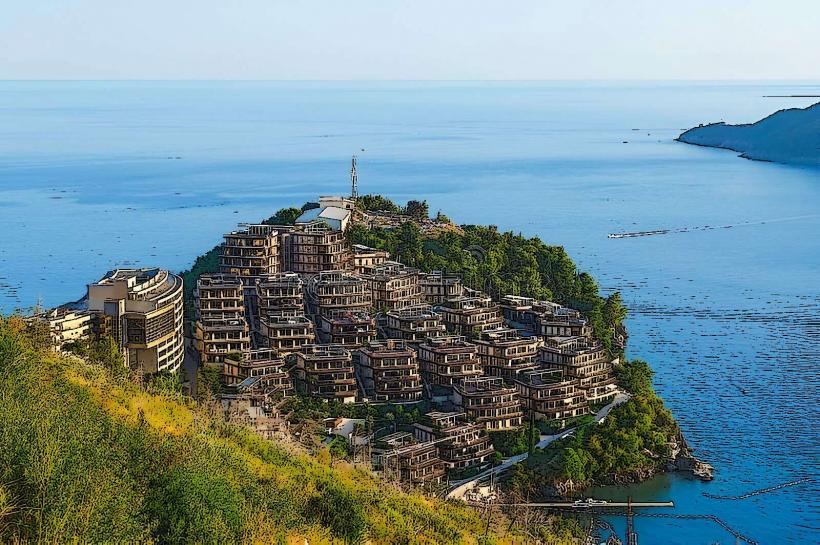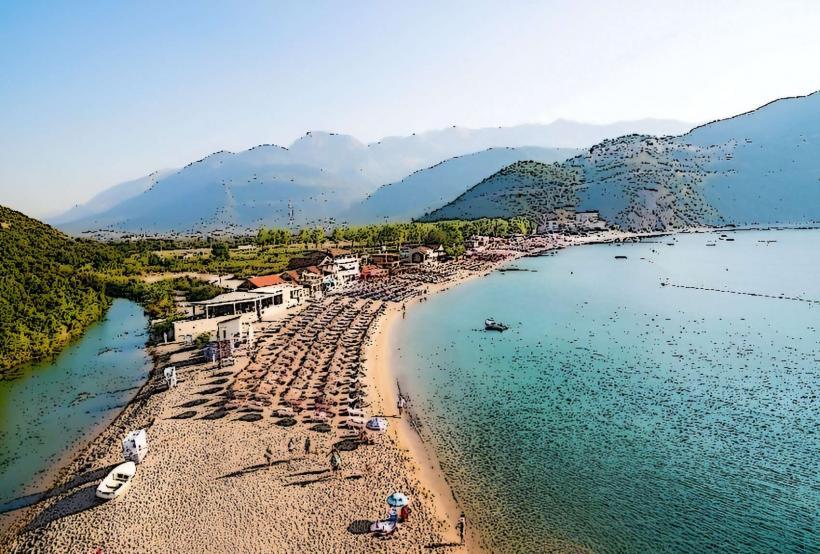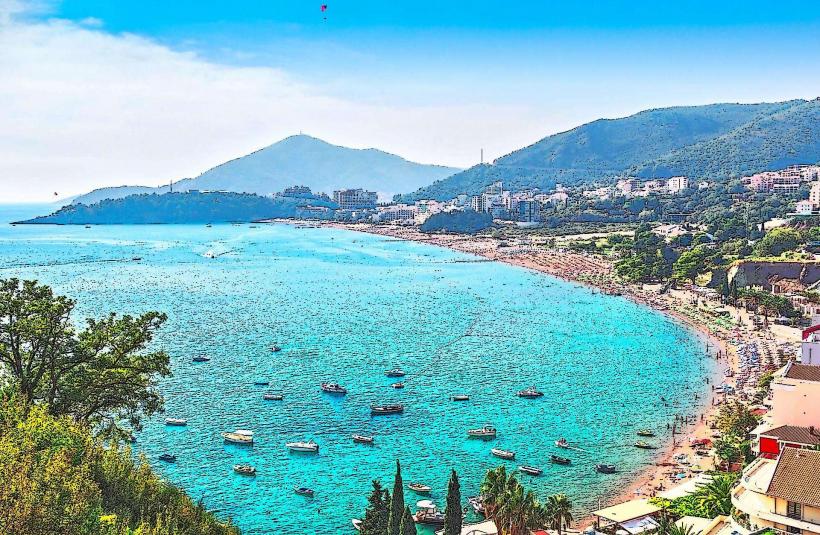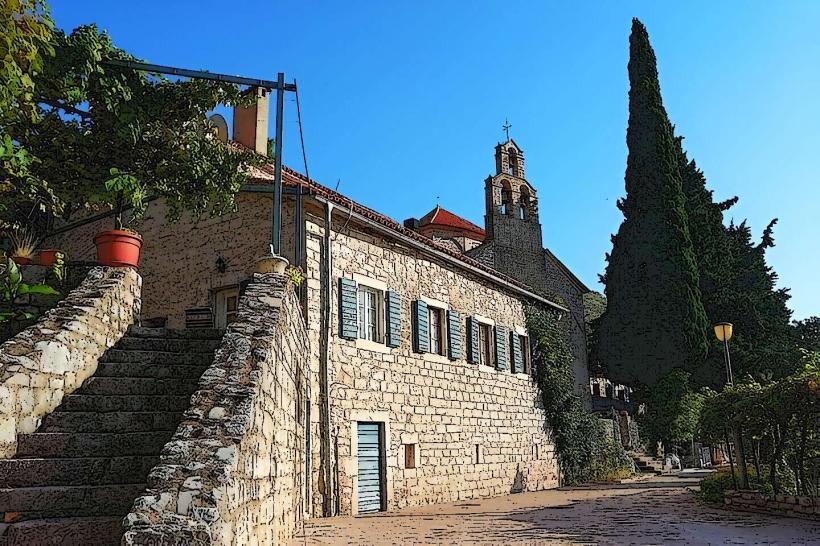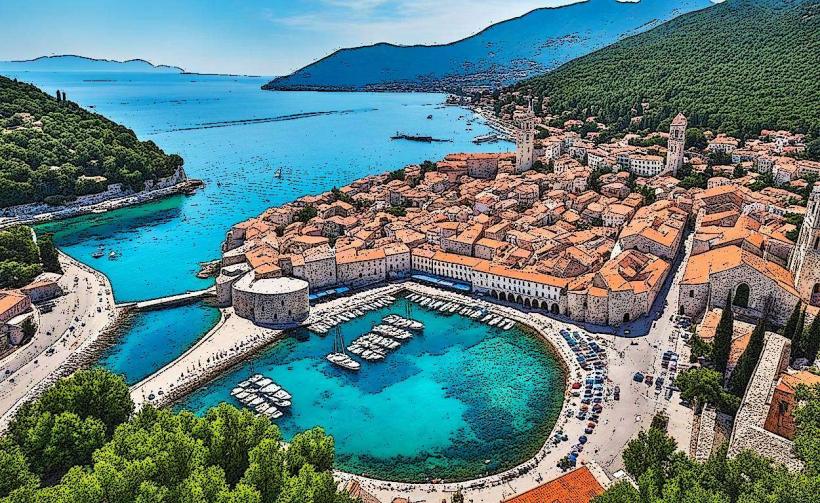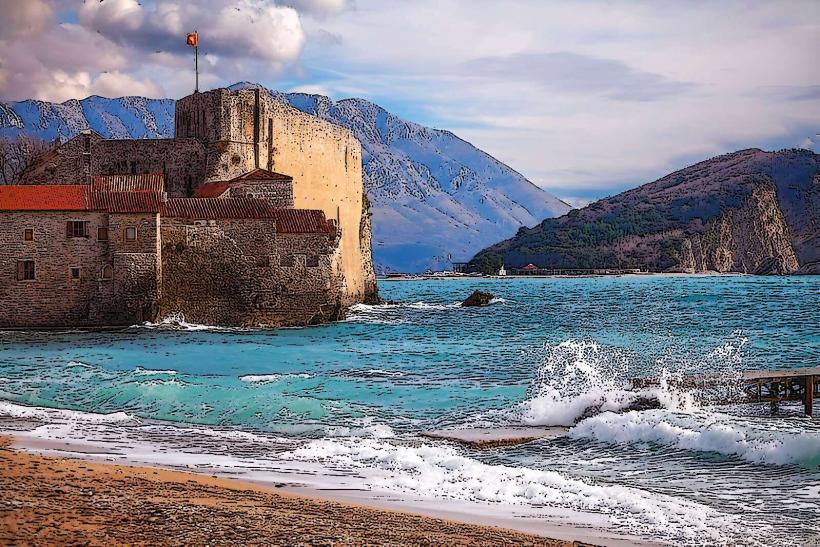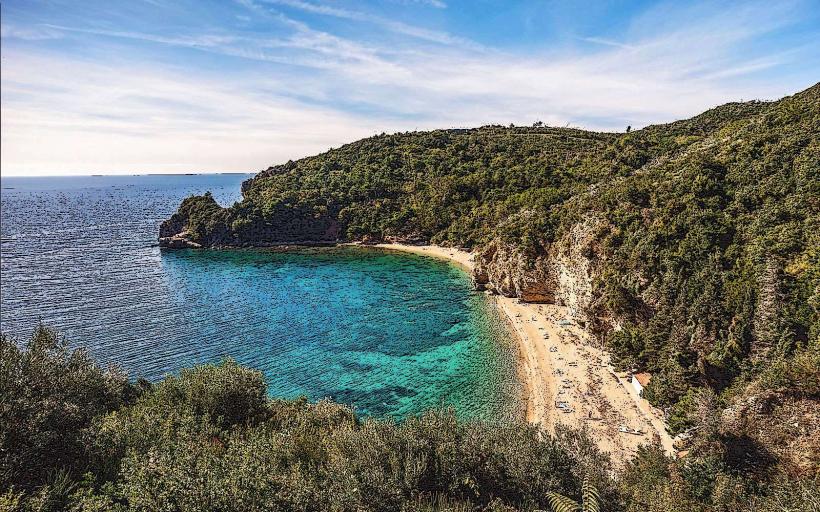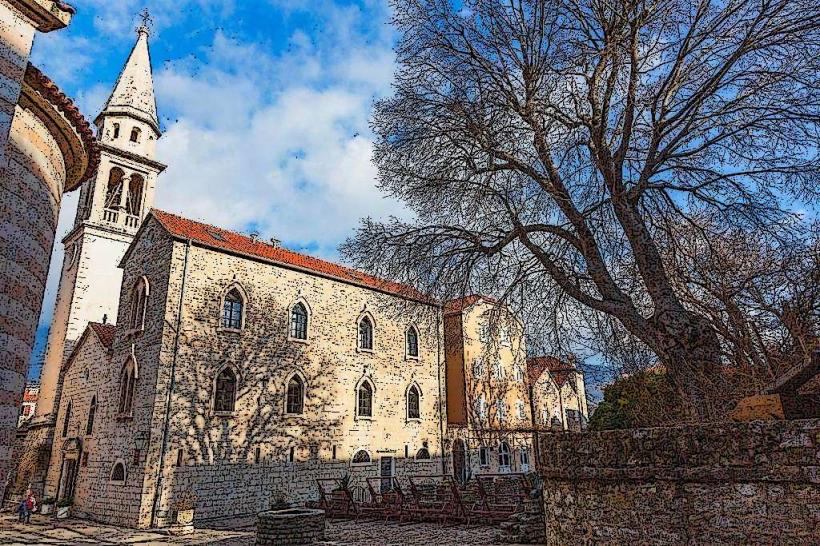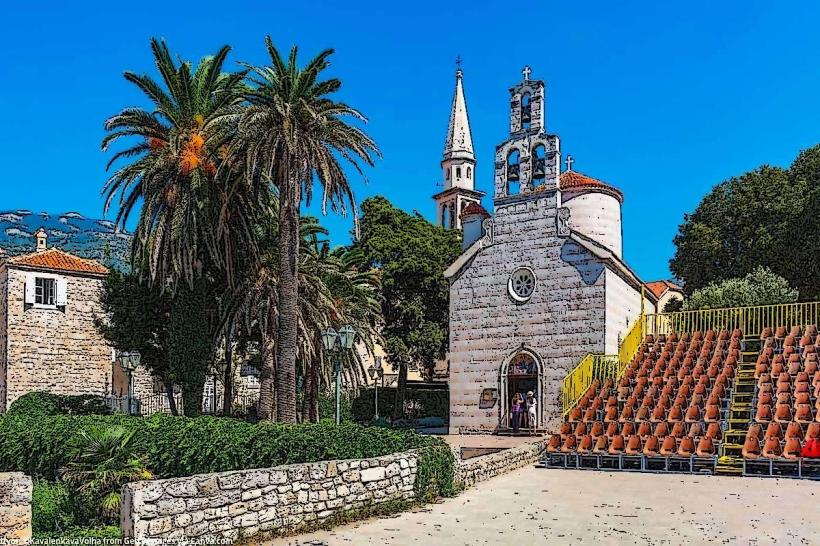Information
Landmark: Budva City WallsCity: Budva
Country: Montenegro
Continent: Europe
The Budva City Walls are one of the most significant historical and architectural landmarks in Budva, Montenegro. These ancient fortifications, which date back to Roman and Venetian times, have stood for centuries, protecting the town from various invaders and serving as a testament to Budva's rich history and strategic importance on the Adriatic coast.
Historical Background
Roman Origins: The foundations of the Budva City Walls can be traced back to Roman times (around the 4th century BC). Budva was originally a Roman colony, and its strategic location on the Adriatic made it an important center for trade and defense. The earliest fortifications were likely constructed to protect the town from invaders, though little remains of the original Roman walls.
Medieval Period: The walls were extensively expanded and reinforced during the Middle Ages under the control of various powers, including the Byzantine Empire, Venetians, and local rulers. The Venetians, in particular, left a strong imprint on the town's fortifications, constructing large sections of the walls in the 15th and 16th centuries.
Venetian Influence: During the Venetian rule (from the 15th to 18th centuries), Budva became an important port and military outpost. The Venetians added several key defensive elements, including bastions, towers, and gates. The fortifications were designed not only to protect the town from sea attacks but also from potential land invasions.
Ottoman and Later Periods: The walls continued to serve their defensive purpose throughout the Ottoman period and beyond, although the need for military fortifications gradually diminished over time. Today, much of the original structure remains, serving as a key reminder of Budva's storied past.
Architectural Features
Main Gate: The Main Gate (also known as "Vrata od grada"), located on the northern side of the old town, is one of the most recognizable features of the Budva City Walls. This arched entrance is the primary access point to the walled city and provides a direct route to the heart of the Old Town.
Bastions and Towers: The city walls are reinforced with bastions and towers that were designed for defense. These structures allowed soldiers to keep watch over the surrounding area and protect the town from potential threats. Notable towers along the walls include the Citadel Tower, Gurdić Tower, and the Lukovo Tower.
Fortifications Along the Coastline: The walls are particularly prominent on the coastal side of the town, where they are reinforced with bastions that overlook the Adriatic Sea. These defensive walls served to protect Budva from naval attacks, which were a constant threat throughout its history.
Defensive Features: The walls are characterized by thick stone masonry, narrow slit windows, and fortified entrances. These features were essential for the town’s defense, providing both protection from physical attacks and offering strategic vantage points for those defending the city.
Preservation and Modern-Day Significance
Cultural Heritage: Today, the Budva City Walls are part of the town's cultural heritage and are recognized as an important symbol of Budva’s history. They are well-preserved and continue to attract visitors interested in learning more about the town's medieval past.
Tourist Attraction: The walls are an integral part of the Budva Old Town (Stari Grad) experience. Visitors can walk along sections of the walls, offering a unique perspective of the town's history, with views of the Adriatic Sea, Budva’s beaches, and the surrounding mountains. The city walls are also an excellent spot for photography, providing picturesque views of the town and its historical architecture.
Conservation Efforts: The walls have been the focus of several conservation projects over the years, aimed at preserving their integrity while allowing for tourism. Today, the walls and fortifications are maintained by the local authorities, ensuring their longevity for future generations to appreciate.
Walking the City Walls
Scenic Views: A walk along the walls provides breathtaking views of Budva Old Town, the surrounding coastal area, and the open sea. You can also enjoy panoramic views of the harbor, Slovenska Beach, and Jaz Beach from certain sections of the walls.
Gates and Entrances: The Budva City Walls have several entrances that lead visitors to various parts of the town. The most popular are the Main Gate and The Gate of the Sea, both of which serve as entry points into the Old Town.
Historical Significance: Along the walk, visitors can observe plaque markers and other informative signage that explain the historical significance of each section of the walls. These provide context to the medieval and Venetian elements of the fortifications, offering insight into their military and strategic importance.
Conclusion
The Budva City Walls are a remarkable and historic feature of Budva that tell the story of the town's rich cultural heritage and its role as a fortified city on the Adriatic coast. From Roman beginnings to Venetian fortifications, the walls stand as a testament to the town’s defensive strength and its importance in the region. Today, they serve as an essential tourist attraction, offering visitors a chance to experience Budva’s past while enjoying stunning views of the town and the sea. For those interested in history, architecture, and cultural heritage, the Budva City Walls are a must-see landmark in Montenegro.

